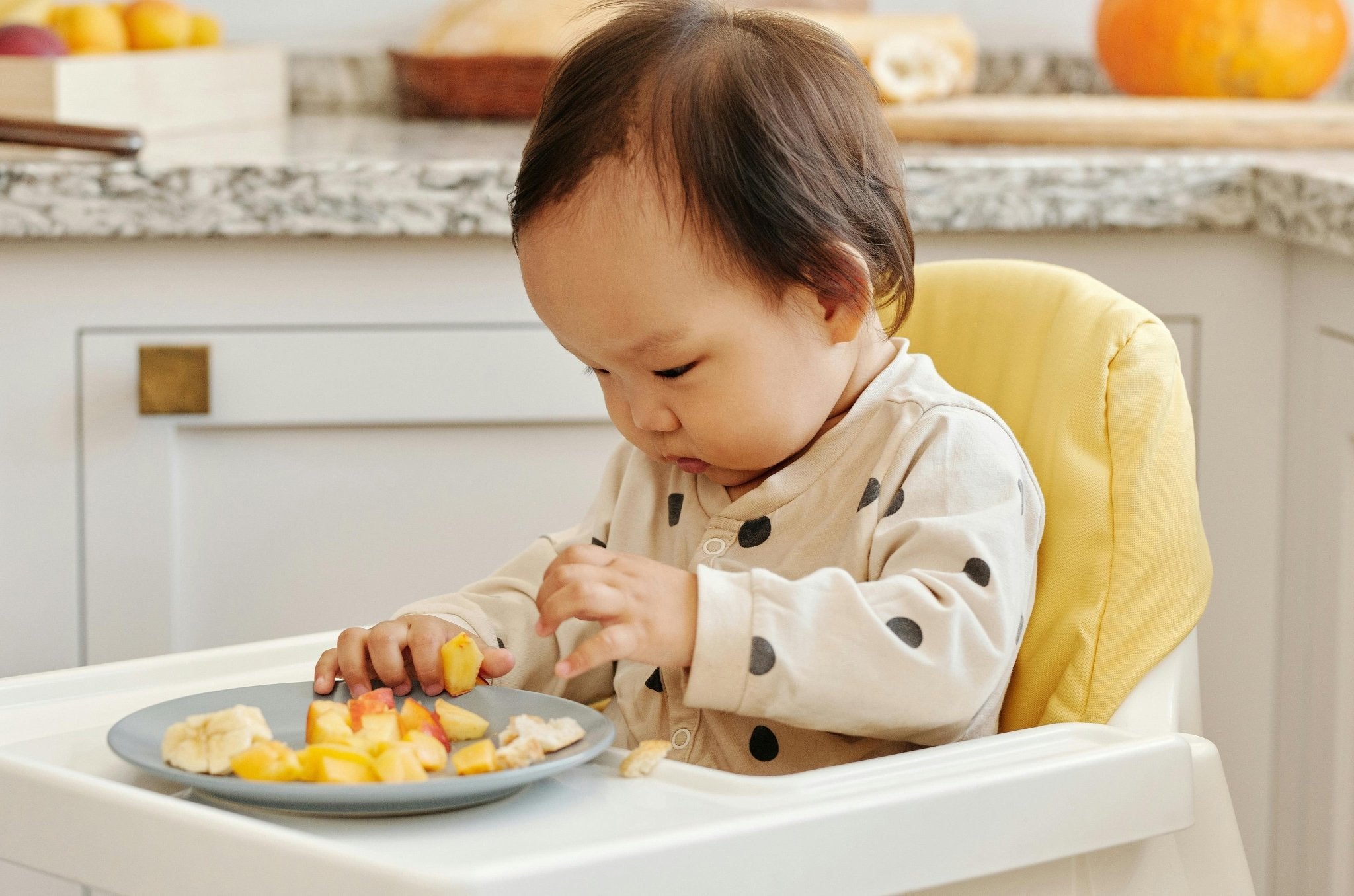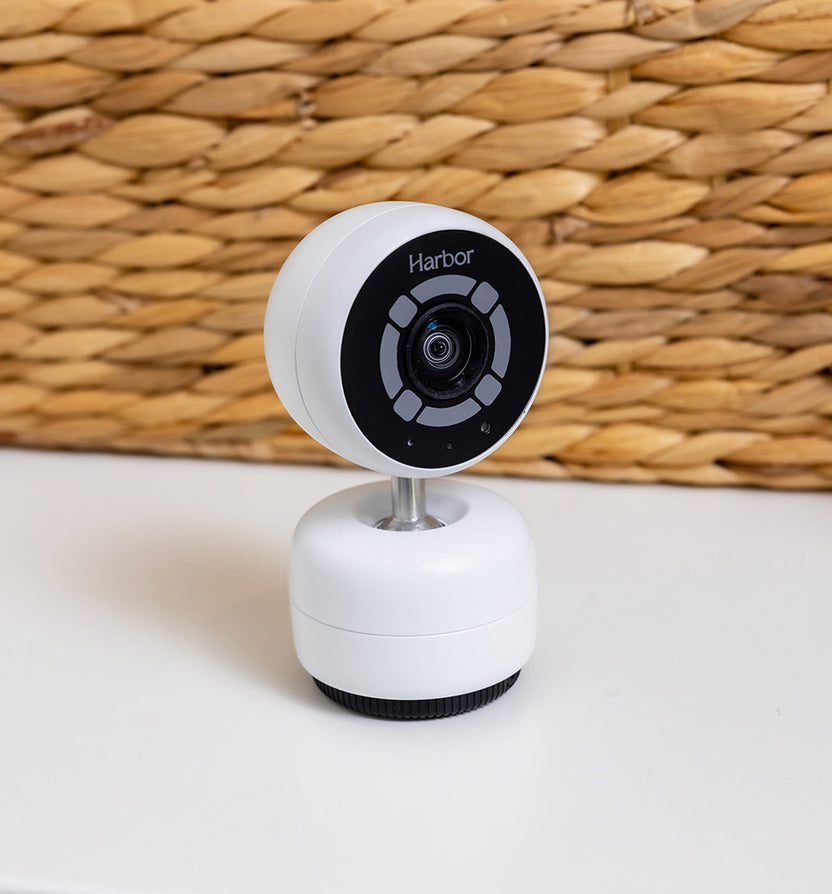
Introducing baby to solid foods marks a significant milestone in their development and can be an exciting parenting moment. While every baby is unique, you’ll start to notice cues that indicate that they may be ready to transition from breast milk or formula to solid foods.
4 Signs Baby is Ready for Solid Foods
Readiness indicators can be visible and invisible, a product of a baby’s growth, actions, and hunger. Keep an eye on any changes in their behavior around food or mealtime to more accurately gauge their readiness for solid foods.
1. They’re 6 months and double their birth weight
According to the American Academy of Pediatrics, most babies are ready to begin eating solid foods around six months of age. By this point, they should have doubled their birth weight and weigh a minimum of 13 pounds. You should absolutely confirm with your pediatrician based on any concerns or potential health issues.
Developmentally, their digestive system will have matured enough to handle a variety of foods and they will have developed the necessary oral motor skills to safely swallow solid foods.
2. They show an interest in food
If your little one seems interested in what you’re eating, reaches for your food, or opens their mouth when you offer them food, they may be ready to start experimenting with solid foods.
3. They’re unsatisfied after eating
If baby continues to show hunger cues after nursing or taking a bottle, it may be a sign that they’re ready for additional nutrition from solid foods. Keep in mind, however, that during a baby’s first year of life, their main source of nutrients should still be from a breast or bottle—solid foods are complementary!
4. They’re able to sit upright and hold their head steady
To reduce their risk of choking, baby should be able to hold their head steady and sit upright with minimal support before being given solid foods. If baby frequently mouths toys, that’s a good indicator that they’ve developed the hand-eye coordination necessary to bring food to their mouth. Additionally, once baby has outgrown the tongue thrust reflex, which pushes food out of their mouth, they may be ready to develop the coordination needed to move food around in their mouth to swallow.
Allow baby to develop on their own timeline
It’s important to keep in mind that while these four signs are good indicators that your little one will be ready for solid foods, each baby develops at their own pace. There’s no rush to introduce solids before your baby is ready. In fact, starting too early can increase their risk of choking, aspirating food into their lungs, and can cause digestive issues.
How to introduce baby to solid foods
When it’s time to start feeding solids to baby, start with single-ingredient purées or mashed soft foods to minimize their risk of choking and allow them to gradually adjust to new textures and flavors.
Offer them small spoonfuls of food and watch for their hunger and fullness cues. As baby becomes more comfortable with solid foods, you can gradually introduce new flavors and textures, like fruits and vegetables and iron-fortified cereals. Doing so can also prevent them from becoming a picky eater later on.
When feeding baby soft, cut foods, avoid anything larger than a chickpea to reduce their choking risk.
How to introduce baby to potential allergens
Research by the American Academy of Pediatrics found that introducing eggs and peanuts to babies between 4–11 months can reduce their risk of developing allergies. Beginning at six months, you can offer baby small pieces of soft scrambled eggs and a pea-sized amount of peanut butter mixed into applesauce. Consult with your pediatrician on introducing these foods for best practice and any specific considerations.
To recap
Making sure baby is developmentally ready for solid foods will ensure a positive feeding experience and support their nutritional needs. Remember that it’s okay to wait. Starting small and slow, and allowing baby to lead, is the key to success. As always, consult with your pediatrician if you have any questions or concerns about baby's feeding habits or developmental readiness.




